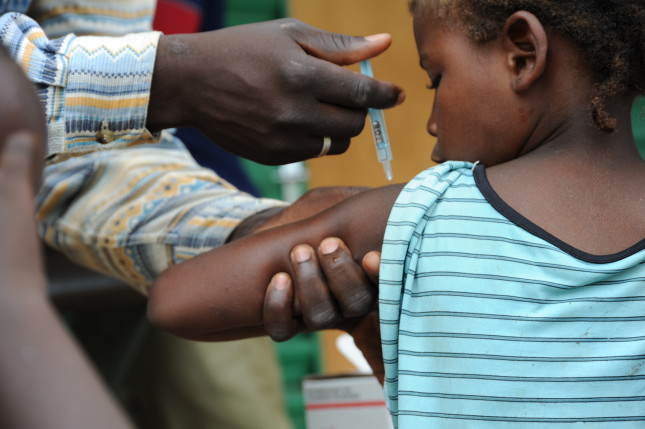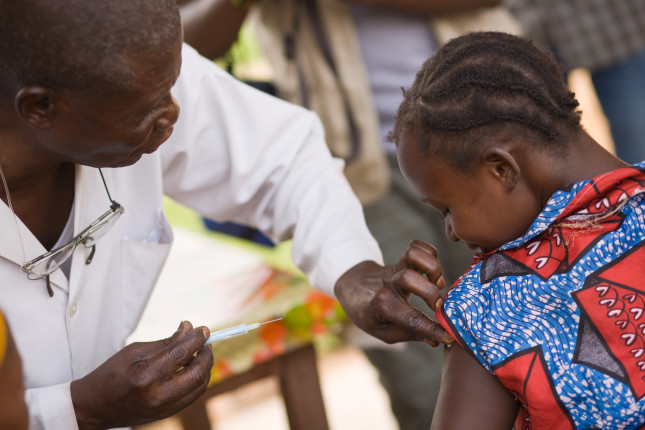-
Covid-19 // Dot-Mom // Reading Radar
COVID-19 Causes Lags in Childhood Vaccinations–“The Time to Catch Up is Now”
May 21, 2021 By Sara Matthews
More than a year after it began, the COVID-19 pandemic continues to disrupt essential health services, including routine childhood immunizations, according to the World Health Organization’s (WHO) second pulse survey. The survey asked countries to report the level of disruption in their jurisdictions to 63 health services during the previous three months. 135 countries and territories from across the six WHO regions responded with data covering October 2020 to February 2021.
More than one-third of countries reported continued disruptions to routine immunization services, with 34 percent reporting disruptions to facility services and 39 percent reporting disruptions to outreach services. There is some indication that countries’ health systems are beginning to rebound from the pandemic, as these disruptions are 20 to 30 percent lower than those from the first pulse survey published in August 2020. Nevertheless, the persistence of disruptions is alarming, considering that routine immunizations prevent approximately 2-3 million deaths each year, says the report.

Indeed, the risks associated with missed childhood vaccinations are likely far greater than the benefits of containing COVID-19, according to a study in The Lancet Global Health. The study compared the number of estimated excess deaths attributable to COVID-19 infections during routine immunization visits to the number child deaths that could be prevented by sustaining immunization services in 54 African countries. The authors considered a low-impact scenario, which focused solely on averted child deaths related to measles during the six-month period following the pandemic’s onset and a high-impact scenario, which covered a longer time frame and included estimated child deaths associated with measles and other diseases, including diphtheria, tetanus, rubella, and pertussis. Both scenarios assume vaccine catch-up campaigns are not implemented.
In the high-impact scenario, continuing routine childhood immunizations would prevent 84 child deaths for every one excess COVID-19 death attributable to exposure at the vaccination site. In the low-impact scenario, continuing routine childhood immunizations would prevent 3 child deaths for every one excess COVID-19 death. These estimates include risks to other household members, such as elderly relatives. Thus, the authors conclude that the benefits of sustaining routine vaccinations “far outweigh” the risks of COVID-19 exposure in these countries.
The dire effects of immunization disruptions are already being seen worldwide. Serious measles outbreaks have been reported in Yemen and Pakistan, and the WHO has warned of impending outbreaks across Africa. To combat this burgeoning crisis, stakeholders must prioritize innovative and sustained approaches to improve immunization access and uptake, says the WHO. “We cannot allow today’s fight against COVID-19 to undermine our fight against measles, polio or other vaccine preventable illnesses,” said Henrietta Fore, Executive Director of the United Nations Children’s Fund. “Prolonged immunization disruptions will have long-term consequences for children’s health. The time to catch up is now.”
Read More:
- COVID-19 as “The Great Disruptor” for essential health services worldwide.
- In South Asia, COVID-19 health service disruptions contributed to 239,000 maternal and child deaths.
- How is COVID-19 affecting maternal health services in Africa? One woman’s story.
- What does the advent of the Biden-Harris administration mean for women and girls?
- How COVID-19 is increasing harmful practices such as child marriage and FGM/C.
Sources: CGTN Africa, Lancet Global Health, Reuters, World Health Organization
Photo Credit: Child receives MenAfriVac™ shot in Burkina Faso, courtesy of PATH Global Health; UNICEF mission against tetanus, Valeriya Anufriyeva/Shutterstock.com, All Rights Reserved.
 A Publication of the Stimson Center.
A Publication of the Stimson Center.








